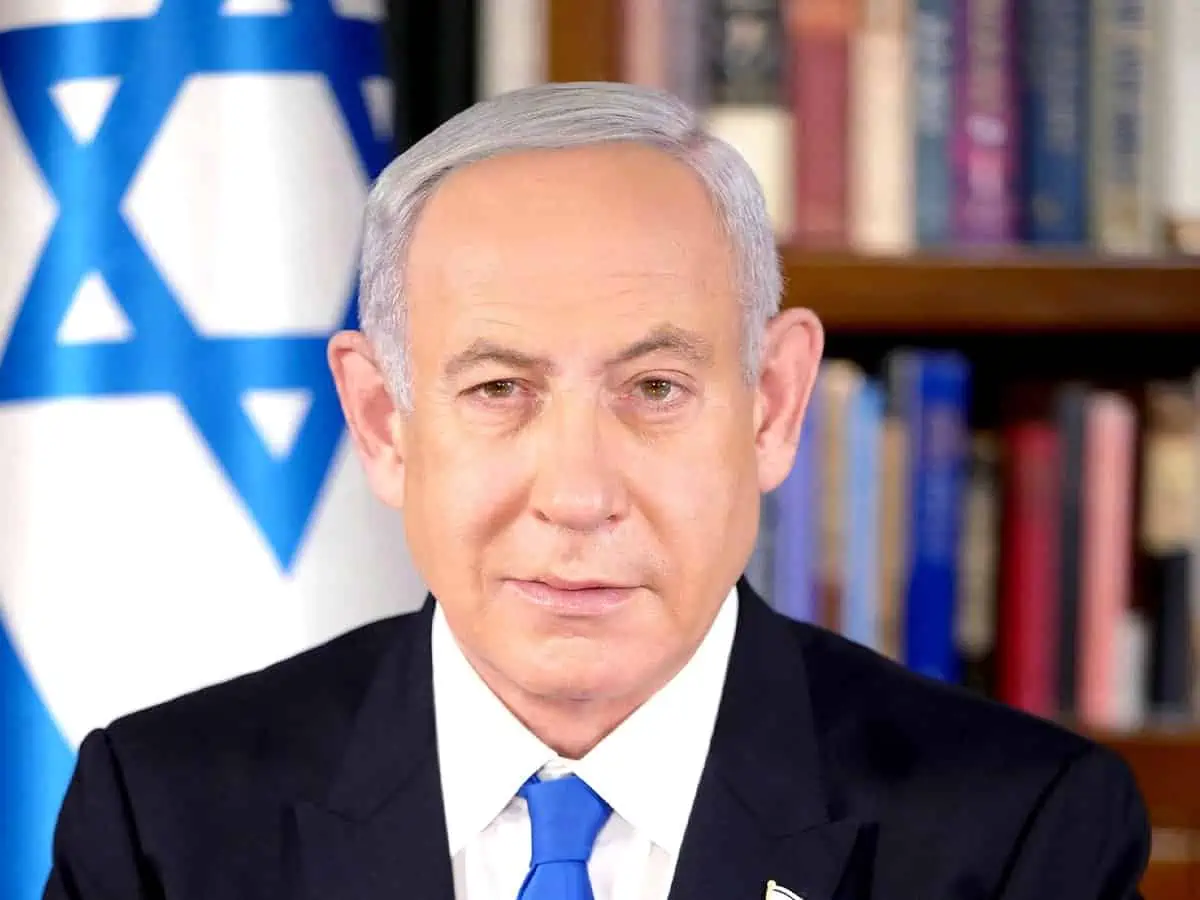
Tel Aviv: Israeli Prime Minister Benjamin Netanyahu staunchly defended his decision to press ahead with an invasion of Rafah, a city on the southern border of the Gaza Strip, despite US President Joe Biden’s warning that such an offensive would be a “red line,” POLITICO reported.
Netanyahu stressed he would not back down, citing the October 7 Hamas raid as a crucial factor in his determination, according to the report.
Amid the raging war between Israel and Hamas, Biden, in an interview with MSNBC, criticised Netanyahu saying that he was “hurting more than helping” Israel by failing to limit casualties.
“He’s hurting – I – in my view, he’s hurting Israel more than helping Israel by making the rest of the world – it’s contrary to what Israel stands for. And I think it’s a big mistake,” Biden said, expressing concern about the impact on Israel’s international standing.
In an exclusive interview with POLITICO, Netanyahu addressed concerns raised by President Biden, who expressed opposition to an escalation in Rafah, saying, “We’ll go there. We’re not going to leave. You know, I have a red line. You know what the red line is, that October 7 doesn’t happen again. Never happens again.”
The Israeli PM said the deadly Hamas raid that claimed over 1,160 lives in his homeland served as a key justification for his resolve.
Without naming Arab countries, Netanyahu said he had the implied backing of numerous leaders to proceed with the offensive against Hamas.
“They understand that, and even agree with it quietly,” he said in an interview with Axel Springer, POLITICO’s parent company, adding, “They understand Hamas is part of the Iranian terror axis.”
President Biden, expressing growing frustration with Netanyahu’s approach, emphasised his opposition to further Palestinian casualties. He said in an interview with MSNBC, “I could not accept 30,000 more Palestinians dead.” The humanitarian implications of an attack on Rafah were also underlined by Germany’s Foreign Minister Annalena Baerbock, who referred to it as a potential “humanitarian catastrophe.”
Netanyahu remained resolute, predicting a swift end to the conflict. “We’ve destroyed three-quarters of Hamas’ fighting terrorism battalions. And we’re close to finishing the last part in warfare,” he asserted, suggesting that the fighting might conclude in as little as a month.
“Maybe six weeks, maybe four,” he added.
As casualty figures became a point of contention, with Hamas claiming civilian deaths exceeding 30,000, Netanyahu offered his own estimates. He said that around 13,000 Palestinian fighters had been killed, with a civilian death rate of 1-1.5 for every combatant, bringing the total to over 26,000 killed, both fighters and civilians.
Responding to international pressure for a cease-fire, Netanyahu dismissed the idea of a pause for the Muslim holy month of Ramadan, saying while he would “like to see another hostage release,” he didn’t see any “breakthrough in the negotiations … Without a release there’s not going to be a pause in the fighting.”
In the face of criticism from President Biden, who suggested Netanyahu was “hurting Israel more than helping Israel,” the Israeli leader defended his position. Netanyahu countered, saying while he was not aware of “exactly what the president meant,” if Biden was saying he was contravening the wishes or interests of Israel, he was “wrong on both counts.”
“[The Israeli people] also support my position that says that we should resoundingly reject the attempt to ram down our throats a Palestinian state. That is something that they agree on,” Netanyahu said, as quoted by POLITICO.
On the question of peace and a two-state solution, Netanyahu diverged from the European view, saying, “Yeah, they would say it. But they don’t understand that the reason we don’t have peace is not because the Palestinians don’t have a state. It’s because the Jews have a state. And in fact, the Palestinians have not brought themselves to recognize and accept the Jewish state.”
Careful in his criticism of President Biden, Netanyahu refrained from entering the American political arena when asked about a preference for Republican candidate Donald Trump. He acknowledged the delicate balance Biden faced in not alienating the left wing of the Democratic Party while maintaining support for Israel among US voters. “The last thing I want to do is enter the American political arena,” he said.
The interview also touched on the possibility of expanding Israel’s campaign to combat Hezbollah in southern Lebanon. Netanyahu left the door open for a military operation to secure the return of people who had left their homes in northern Israel due to fear of cross-border attacks by the Shiite militia group.
“They’ve left their homes because of fear that Hezbollah would perpetrate the massacres in the northern border with Lebanon that Hamas perpetrated in the border with Gaza. So we’ll do whatever we can to restore security for them and bring them home … If we have to do it with military means, we’ll do so. If there’s a diplomatic way to achieve it, fine. But ultimately, we’ll do it,” Netanyahu told POLITICO.
